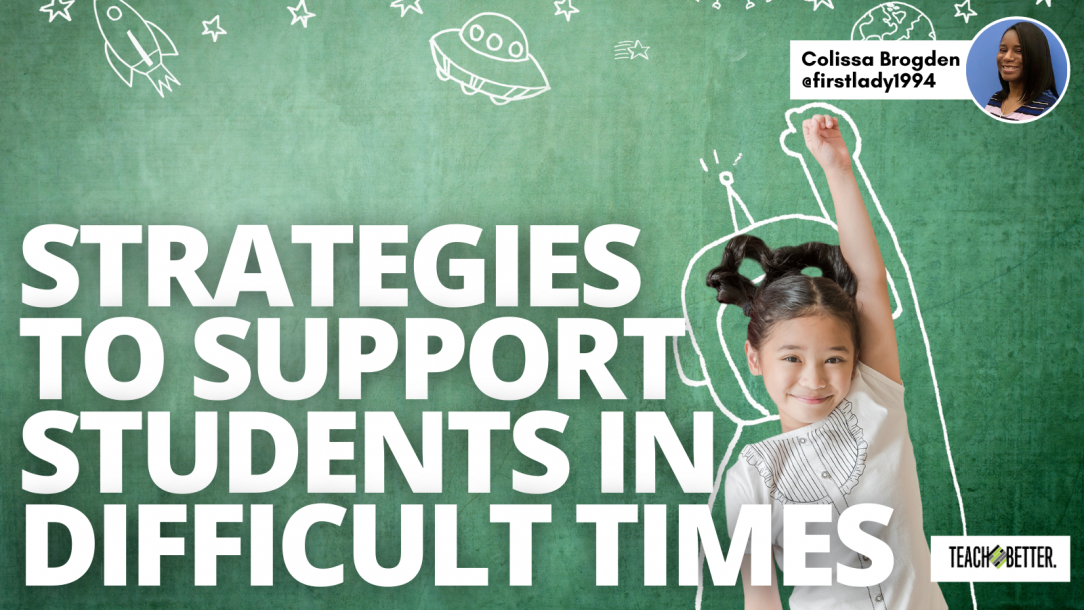TL;DR:
- Over the last year, educators and students have faced many difficult and traumatic events.
- The first step to supporting your students is to understand the signs of trauma.
- Understand how to respond when students show their emotions or make an uncomfortable statement.
- Pay attention to marginalized groups and take notes of students who may be likely to be bullied.
This past school year, educators and students have learned how to be resilient in the face of adversity and by traumatic events. Most will agree that teaching during these tumultuous times is difficult. Educators found it difficult to address student emotions and concerns and prevent personal biases from interrupting the classroom.
Therefore, administrators and teacher leaders in my building sought to equip teachers with resources to have constructive and objective conversations. We did not encourage bringing up the topic for full class discussions.
However, if a student brings something up, we wanted to offer some talking points so that teachers could have some ideas of the best way to handle it. We focused on the areas of student emotional well-being, guiding difficult conversations, and identifying school resources.
Support Students During Difficult Times: The Impact of Trauma on Students
First, educators should learn how to recognize trauma. Consider the following:
- Students who have difficulty managing emotions.
- Students who exhibit chronic irritability/anxiety that interferes with critical thinking, social, and problem-solving skills.
- Empathy.
- Verbal and nonverbal communication of fears and concerns.
- Students who are not fully aware of the context of the events.
- Grasping how individual perception and behaviors have an effect on others.
- Working in collaboration with others.
Support Students During Difficult Times: A student expresses that they are emotional (upset, worried, overwhelmed, etc.) about the events.
Secondly, students have a right to have and express, appropriately, how they feel. Therefore,
- Acknowledge and normalize their feelings.
- Help them know it is understandable to feel the way they feel and that adults are also struggling with how to process everything.
- Remind the student of the importance of leaning on their support group. And remind them family, friends, and adults in the school are there for them.
- If the student continues to seem upset or wants to talk more, encourage them to see their school counselor or a dean.
- If staff determines the student could use ongoing counseling, make a referral to the school therapist.
Support Students During Difficult Times: A student makes a controversial political statement that is likely to make classmates uncomfortable.
Remind the student:
- The classroom is a place of unity and respect.
- Some statements and/or concerns can be harmful and offensive to others.
- When they discuss issues in their personal lives it is important to remember effective communication skills such as being a good listener, showing respect, showing empathy, and taking turns speaking.
- Having positive relationships with others is extremely important as we mature and transition into adulthood.
Encourage the students to educate themselves as much as possible. Suddenly all these new words and concepts are in the news and it is so important to be educated firsthand on these matters. This goes for adults as well; it is crucial that we are only relaying facts and not getting caught up in rhetoric. Encourage students to read news sources and not to receive their news from social media!
[scroll down to keep reading]
Please Be Aware
Finally, pay particularly close attention to students who fall into marginalized groups. Additionally, take notice of students who may be likely to be bullied.
- Simply ask how they are doing.
- Observe for any signs or changes in their mental health (overly tired, disheveled appearance, isolating self, anxious, angry outbursts, argumentative, non-compliant, aggressive, etc.).
- If you have any concerns about a student, please encourage them to check in with their school counselor, a dean, or with student support services.
Resources for Having Mindful Discussions:
- The National Child Traumatic Stress Network https://www.nctsn.org/resources/trauma-informed-school-strategies-during-covid-19
- Race and Equity Resources from the American School Counseling Association https://www.schoolcounselor.org/school-counselors/professional-development/learn-more/race-and-equity-resources
- Healing from Community Trauma https://www.wcsu.edu/diversity/healing-from-community-trauma-resources-and-information-draft/
- All Sides website https://www.allsides.com/unbiased-balanced-news
About Colissa R. Brogden
Colissa R. Brogden is in her 20th year as an English Language Arts Educator. Currently, she teaches ELA 11th and 12th at Great Oaks Career Campuses in Cincinnati, Ohio. She is a former Adjunct at the University of Cincinnati. She has a Masters of Education in Curriculum and Instruction and enjoys sharing best practices with other educators. Teaching and learning is her passion. She is dedicated to teaching and empowering her students with the skills to be exceptional individuals!



